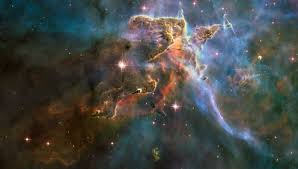
Unveiling the Mysteries of Outer Space: A Journey into the Unknown
The Final Frontier: A Journey through Space
Space, the vast expanse that surrounds our planet, has captivated human imagination for centuries. From the twinkling stars in the night sky to the mysterious depths of black holes, space is a realm of endless wonder and discovery.
One of the most fascinating aspects of space exploration is the sheer scale of it all. The universe is home to billions of galaxies, each containing billions of stars and planets. The distances between these cosmic bodies are mind-boggling, yet scientists have found ways to study and understand them.
Space exploration has led to groundbreaking discoveries that have expanded our knowledge of the universe. From the first human steps on the moon to robotic missions exploring distant planets, we continue to push the boundaries of what is possible.
Not only does space hold scientific importance, but it also sparks creativity and inspiration. Artists, writers, and filmmakers have long been inspired by space, creating works that reflect our fascination with the unknown.
As technology advances, so too does our ability to explore and understand space. From telescopes that can peer deep into distant galaxies to spacecraft that can journey to other planets, humanity’s reach into space continues to grow.
While there are still many mysteries waiting to be unravelled, one thing is certain: space will always be a source of wonder and intrigue for generations to come.
4
- What is space?
- How big is the universe?
- How many planets are in our solar system?
- Is there life on other planets?
- What is a black hole?
- How do astronauts eat and sleep in space?
- What causes a meteor shower?
- Can we travel to other galaxies?
What is space?
Space, often referred to as the final frontier, is the vast and seemingly infinite expanse that exists beyond Earth’s atmosphere. It is a vacuum that contains stars, planets, galaxies, and other celestial bodies. Space is not just empty nothingness; it is filled with various forms of energy and matter, such as light, radiation, and dark matter. The study of space, known as astronomy, helps us understand the origins of the universe, the nature of galaxies, and the mysteries of black holes. Space is a realm that continues to awe and inspire us with its beauty and complexity.
How big is the universe?
The question “How big is the universe?” is one that has puzzled scientists and astronomers for centuries. The sheer vastness of the universe is difficult to comprehend, with billions of galaxies each containing billions of stars. To put it into perspective, the observable universe is estimated to be about 93 billion light-years in diameter. However, this is just a fraction of the entire universe, which may be infinite in size. The enormity of the universe challenges our understanding of space and time, reminding us of the endless mysteries that lie beyond our reach.
How many planets are in our solar system?
Our solar system is home to eight planets: Mercury, Venus, Earth, Mars, Jupiter, Saturn, Uranus, and Neptune. These celestial bodies orbit the Sun in a harmonious dance that has fascinated astronomers and space enthusiasts for centuries. Each planet has its own unique characteristics and mysteries waiting to be discovered, making our solar system a treasure trove of celestial wonders.
Is there life on other planets?
The question of whether there is life on other planets has intrigued scientists and enthusiasts alike for centuries. While we have yet to find definitive proof of extraterrestrial life, the vastness of the universe and the discovery of potentially habitable exoplanets have sparked hope and curiosity. Scientists continue to explore this question through missions to Mars, the search for microbial life in our solar system, and listening for signals from distant stars. The quest to uncover the mysteries of life beyond Earth remains a captivating journey that fuels our imagination and drives scientific exploration into the unknown realms of space.
What is a black hole?
A black hole is a fascinating and enigmatic cosmic phenomenon that captures the imagination of scientists and space enthusiasts alike. It is a region in space where the gravitational pull is so strong that nothing, not even light, can escape its grasp. Black holes form when massive stars collapse under their own gravity at the end of their life cycle. They are often described as “invisible” due to their ability to absorb all light, making them undetectable through traditional means. Despite their mysterious nature, black holes play a crucial role in shaping the universe and are key objects of study in astrophysics.
How do astronauts eat and sleep in space?
In the weightless environment of space, astronauts face unique challenges when it comes to eating and sleeping. To address the issue of dining, astronauts consume specially prepared meals that are often dehydrated or vacuum-sealed to prevent them from floating away. These meals are designed to be easily rehydrated and consumed in a zero-gravity environment. When it comes to sleep, astronauts have sleeping quarters equipped with sleeping bags that are tethered to the walls to keep them from floating around. The lack of gravity can affect sleep patterns, so astronauts often use sleep masks and earplugs to help them rest in the artificial day-night cycle established on the spacecraft. Despite these challenges, astronauts adapt to their new routines and find ways to nourish their bodies and get much-needed rest while exploring the wonders of space.
What causes a meteor shower?
Meteor showers occur when the Earth passes through the debris left behind by a comet as it orbits the sun. Comets are made up of ice, dust, and rocky particles, and when they get close to the sun, they heat up and release this material into space. Over time, this debris spreads out along the comet’s orbit. When our planet intersects this debris field during its own orbit around the sun, the particles enter Earth’s atmosphere at high speeds, creating bright streaks of light that we see as shooting stars during a meteor shower. The beauty of a meteor shower is a reminder of the dynamic and interconnected nature of our solar system.
Can we travel to other galaxies?
The idea of travelling to other galaxies is a fascinating concept that has captured the imagination of many. While it is currently beyond our technological capabilities to physically travel to other galaxies due to the vast distances involved, scientists are exploring theoretical concepts such as wormholes and warp drives that could potentially make intergalactic travel a reality in the distant future. For now, our focus remains on studying and understanding our own galaxy, the Milky Way, as we continue to push the boundaries of space exploration and expand our knowledge of the universe.



